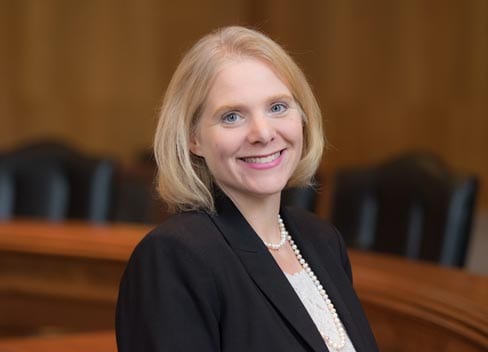Hundreds of CA Compassion & Choices Volunteers Help Persuade UCSF to Drop Proposed Partnership with Dignity Health
Partnership Would Have Prevented UCSF Patients from Using End of Life Option Act
May 28, 2019 aid in dying California End of Life Option Act medical aid in dying
 Compassion & Choices praised University of California at San Francisco (UCSF) officials for responding to letters of protest from hundreds of Compassion & Choices volunteers in California and other state residents by dropping a proposal to expand its relationship with Dignity Health.
Compassion & Choices praised University of California at San Francisco (UCSF) officials for responding to letters of protest from hundreds of Compassion & Choices volunteers in California and other state residents by dropping a proposal to expand its relationship with Dignity Health.
If the University of California’s Board of Regents had approved the proposed partnership,
Dignity Health’s Catholic “common values” would have prevented UCSF patients at four Dignity Health Bay
Area hospitals (Dominican Hospital, Saint Francis Memorial Hospital, Sequoia Hospital and St.
Mary's Medical Center) from using or receiving information about California’s End of Life Option
Act. UCSF’s announcement today to drop the proposal follows Compassion & Choices’ May 23
grassroots campaign launch, resulting in nearly 400 of its volunteers writing UCSF officials to
oppose the partnership.
“The irony of Dignity Health’s ‘common values’ rejection of medical aid in dying is polling shows
three out of four Californians say medical aid in dying is a common value they support,” said
Kim Callinan, CEO of Compassion & Choices. “We greatly appreciate UCSF’s decision because
it shows the medical community is undergoing a critically important transformation to ensure
that patients’ values drive the decision-making process for their healthcare, especially at the end
of life.”
“...[W]e have seen and heard hundreds of thoughtful, principled, and impassioned statements
about UCSF’s proposal to expand our relationship with Dignity Health…a health care system
that has certain limits on women’s reproductive services, LGBTQ care, and end-of-life options,”
wrote UCSF Health Chancellor Sam Hawgood and President/Chief Executive Officer Mark Laret
in a letter posted today on the UCSF website. “Given the concerns, we will not continue to
pursue the affiliation as it had been envisioned.”
“We thank the hundreds of Compassion & Choices’ volunteers and our coalition partners,
including the ACLU and LGBTQ groups, whose advocacy helped persuade UCSF officials to
drop this ill-advised proposal,” said Samantha Trad, California State Director for Compassion & Choices. “Without this collective effort, UCSF officials would have moved forward with this
proposed partnership that would have caused needless suffering for patients at its four Bay
Area hospitals.”
“Two Dignity Health-owned facilities rejected my wife’s request for medical aid in dying to
peacefully end her suffering from terminal cancer, so I thank UCSF officials for dropping this
proposed partnership,” said Tom Whaley, whose 42-year-old wife Christina finally was able to
find a provider who would write the prescription at UCLA, 200 miles from their San Luis Obispo
home, so she could die peacefully last year. “The reality is most terminally ill people who try to
utilize the End of Life Option Act are much older and weaker than Christine was, so they
wouldn’t be able to overcome the obstacles she did to use the law to end their suffering.”
A total of 768 terminally ill Californians received prescriptions for aid-in-dying medication and
485 (63%) of them took the medication between the first day of the law took effect, June 9,
2016, until Dec. 31, 2017, according to California Department of Public Health annual reports.
California is one of eight states — including Colorado, Hawai‘i, Montana, New Jersey,
Oregon, Vermont, and Washington — as well as the District of Columbia, that have
authorized medical aid in dying. Collectively, these nine jurisdictions represent more than one
out of five Americans (21%) and have 40 years of combined experience successfully
implementing this end-of-life care option.


